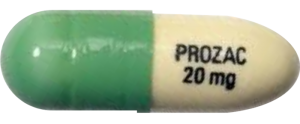Prozac (Fluoxetine) at Canadian Pharmacy
What Is Prozac (Fluoxetine / Flunil / Fontex / Ladose / Sarafem / Solax): What is It Used For, How it Works, Precautions, Recommendations, Side Effects, Antidepressant at Canadian Pharmacy
CONTENT
- What is Prozac (fluoxetine) used for?
- How does Prozac (fluoxetine) work?
- How Should I Take Prozac?
- What should I know before using Prozac?
- Who shouldn’t take Prozac?
- Can I take Prozac if I’m pregnant/breastfeeding?
- What are the side effects of Prozac?
- Is it dangerous to take other medicines at the same time?
What is Prozac (fluoxetine) used for?
In adults, Prozac (fluoxetine) is used to treat:
- OCD – obsessive-compulsive disorder (a disorder in which tasks are repeated excessively)

- major depression
- bulimia nervosa.
In children eight years of age and older, fluoxetine is used for:
- moderating severe major depression, if the child doesn’t respond to psychological therapy in four-six sessions. Prozac should only be prescribed by a children’s specialist, and only with the usual psychological therapy.
How does Prozac (fluoxetine) work?
Prozac in capsule and liquid form contains the antidepressant fluoxetine, which is a selective serotonin reuptake inhibitor (SSRI). Fluoxetine is also available as a generic medicine, without the brand name.
Antidepressants have an effect on brain cells. There are chemical compounds in the brain called neurotransmitters, which act as messengers of the nerve cells. Serotonin is one of them.
When serotonin is released, it acts to lift your mood. When it is reabsorbed, it has no effect. It is thought that in cases of depression, there may be less serotonin released in the brain.
SSRIs prevent serotonin from being reabsorbed. This prolongs the good-mood effect of released serotonin. This way, Prozac helps treat depression.
It is also used in the treatment of bulimic neurosis and OCD (obsessive compulsive disorder) in adults.
It may take two to four weeks for the effect of this medicine to show, so it is important to keep using it, even if it doesn’t seem to work at first. However, if you feel even more depressed or experience even more stressful thoughts in these first weeks, you should talk to the doctor.
How Should I Take Prozac?
- Prozac dosage is intended to be once a day, but the total daily dose may be split in a few servings.
- Try to take a dose every day at the same time. The drug can have an alerting effect, so some find it best to take it in the morning to avoid sleep problems at night.
- Prozac can be taken with or without food.
- If you forget to have a dose at your usual time, take it as soon as you remember, unless it’s almost time for your next dose. In that case, just skip it and take the next dose as usual. Do not take two doses to catch up.
- Keep taking this drug on schedule until your doctor says to stop. Antidepressant therapy is usually continued for six months or more after recovery to prevent depression from resurfacing.
- Avoid suddenly stopping your treatment; suddenly dropping SSRIs may cause headache, a “pins and needles” sensation, nausea, tremor, difficulty sleeping, intense dreams, agitation, dizziness, and anxiety. These Prozac withdrawal symptoms are not due to addiction; they will pass.
What should I know before using Prozac?
- Depression is associated with a risk of self-harm and suicide. This medicine may not help you feel better for first few weeks. Keep taking it and you will feel better, eventually.
- In children, Prozac is not recommended for use except to treat moderate to severe depression. Children may be more affected by suicidal thoughts and behavior. They should be closely monitored and encouraged to report any stressful thoughts about self-harm, irritability, mood swings or other changes.
- This drug may affect your ability to drive and operate machinery properly. Be careful.
- Avoid alcohol while using this drug.
- SSRI antidepressants may cause unpleasant and distressing restlessness (need to move), accompanied by an inability to sit or stand still. It usually happens (if it does) within the first few weeks. If you experience such symptoms, consult your doctor or pharmacist.
- If you experience seizures while using this drug, consult your doctor, as you will probably need to stop taking this medicine. It is also the case if you have epilepsy or experience more seizures after this medicine.
- Consult your doctor if you notice skin rash or other allergic reactions from this medicine.
Who shouldn’t take Prozac?
- People who have used a monoamine-oxidase inhibitor antidepressant (MAOI) two weeks or less before treatment.
- People in a manic episode.
- People with epilepsy.
- People with seizure disorders.
- Prozac in liquid has sucrose and shouldn’t be taken by people with fructose intolerance, sucrase-isomaltase insufficiency, or glucose-galactose malabsorption.
Prozac should be used with caution by:
- Seniors.
- Young adults.
- Children.
- Adolescents.
- People with suicidal behavior.
- People with manias, such as hypomania, manic depression, etc.
- People who receive electroconvulsive therapy (ECT).
- People who use antipsychotic medicines.
- People with liver problems.
- People with heart diseases.
- People with a history of abnormal heart rhythm.
- People with a slow heart beat.
- People with low potassium or magnesium levels in the blood.
- People with diabetes.
- People with epilepsy
- People with seizures.
- People with bleeding disorders.
- People who take drugs that affect blood clotting.
- People with high pressure in the eyes, or at risk of glaucoma.
Can I take Prozac if I’m pregnant/breastfeeding?
- This medicine can be taken during pregnancy, but with caution. This medicine can cause fluoxetine-type side effects and withdrawal symptoms in a newborn baby if taken in late pregnancy. If you are pregnant, keep seeing your doctor while taking this medicine.
- This medicine can pass into breast milk and have adverse effects on an infant. Discuss risks and benefits with your doctor.
What are the side effects of Prozac?
The following are the Prozac side effects:
Very common (affects 1 in 10 people)
- Difficulty sleeping (insomnia).
- Headache.
- Nausea.
- Fatigue
- Diarrhea.
Common (affects 1 in 100 people)
- Dry mouth
- Decreased appetite and weight loss.
- Anxiety, nervousness, restlessness.
- Decreased sex drive, problems with getting an erection or ejaculation
- Dizziness.
- Feeling sleepy, lethargic.
- Blurred vision.
- Feeling your heart beat.
- Flushing.
- Indigestion.
- Yawning.
- Vomiting.
- Rash or itching.
- Increased sweating.
- Aching joints.
- Frequent urination.
Is it dangerous to take other medicines at the same time?
Fluoxetine shouldn’t be taken with MAOIs (monoamine oxidase inhibitor antidepressants): isocarboxazid, phenelzine, tranylcypromine; with selegiline and rasagiline, which are MAOIs used to treat Parkinson’s disease. If you’ve been using one of these, don’t start taking Prozac (fluoxetine) until it’s been 14 days since you stopped taking them. If you are prescribed moclobemide, don’t start taking it until five weeks pass after Prozac has stopped.
The antibiotic Linezolid is also a MAOI. It can be prescribed with fluoxetine if there are places for observation of serotonin symptoms and monitoring blood pressure.
Prozac can reduce the benefits of tamoxifen, and should be avoided by people who take tamoxifen.
Fluoxetine can increase the blood levels of the following:
- benzodiazepines,g., diazepam or alprazolam (if these are used with Prozac it may cause drowsiness)
- carbamazepine
- clozapine
- aripiprazole
- atomoxetine
- flecainide
- phenytoin
- haloperidol
- tricyclic antidepressants (amitriptyline, imipramine, clomipramine, desipramine)
If you take Prozac with lithium, it may cause a high blood level of lithium.
There is an increased risk of side effects if Prozac is taken with the following medications since they also enhance serotonin activity in the brain:
- duloxetine
- sibutramine
- metoclopramide
- an herbal remedy St John’s wort – – this should be avoided in combination with Prozac
- triptans for a migraine, such as sumatriptan
- tryptophan
- tramadol
Prozac may increase the effects of anti-blood-clotting drugs such as warfarin, and this may cause easy bleeding. If you’re taking such drugs with Prozac, your blood clotting time should be closely monitored.
SSRIs are associated with bleeding abnormalities when the following drugs are also used:
- some antipsychotic medicines, such as clozapine
- blood thinning medicines such as clopidogrel, aspirin, dipyridamole
- prochlorperazine
- dabigatran
- ibuprofen, naproxen, diclofenac
- amitriptyline.
Treatment with Prozac may alter blood sugar levels in people with diabetes. If you have diabetes, discuss this with your doctor.
Treatment with Prozac may reduce the anticonvulsant effect of drugs used to treat epilepsy.
There is an increased risk of side effects if Prozac is taken with antipsychotic drugs like haloperidol.
There is an increased risk of abnormal heart rhythm if Prozac is used with:
- antiarrhythmics (amiodarone, disopyramide, procainamide, sotalol)
- antihistamines (astemizole, mizolastine, terfenadine)
- arsenic trioxide
- certain antidepressants (imipramine, amitriptyline, maprotiline)
- atomoxetine
- certain antimalarials (halofantrine, quinine, chloroquine, mefloquine)
- Riamet
- certain antipsychotics, (sertindole, thioridazine, haloperidol, pimozide)
- cisapride
- dronedarone
- intravenous erythromycin or pentamidine
- methadone
- droperidol
- moxifloxacin.
Other drugs containing fluoxetine:
- Olena
- Prozit
- Oxactin
- Prozep
Canadian Pharmacy Team – www.canadianhealthmall.com


